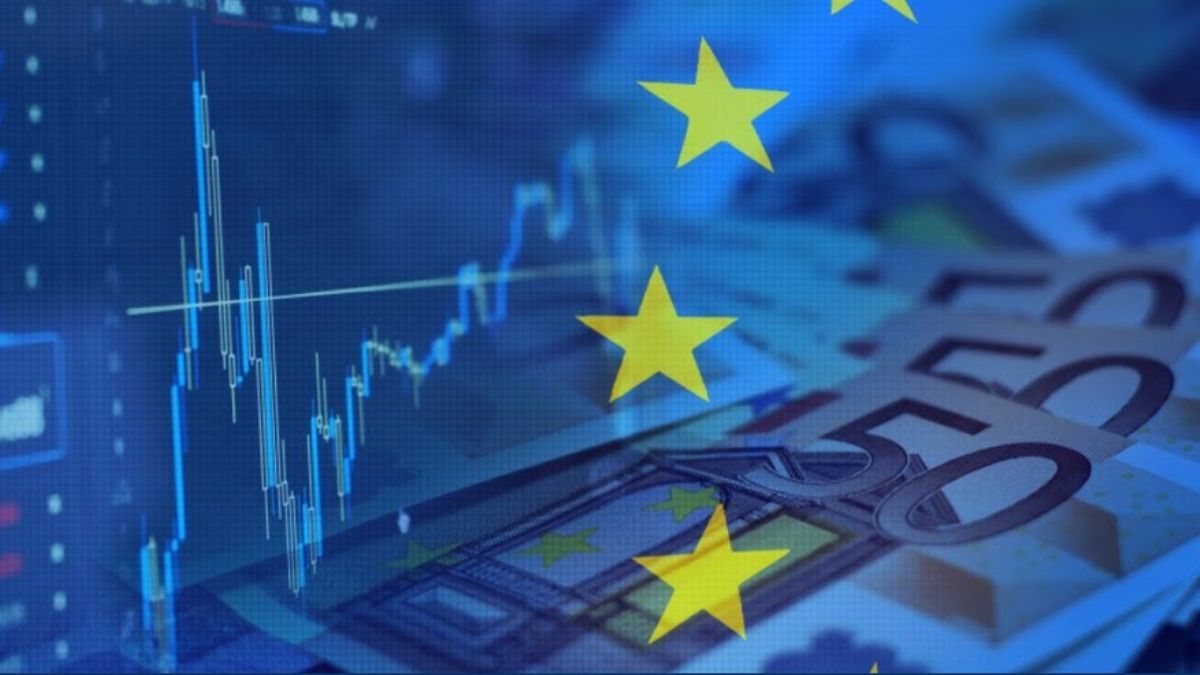Friedrich Merz, the front-runner to become Germany’s next chancellor has warned that the European Union is at risk of another financial crisis due to excessive government debt.
“We cannot be as careless with our public finances as perhaps some others — and even with others, I’m starting to get very worried,” Merz told POLITICO’s Berlin Playbook Podcast.
While he did not specify countries, six EU nations—France, Italy, Greece, Belgium, Spain and Portugal—have debt exceeding their annual economic output. “The next financial crisis is coming,” he said. “It will be a sovereign debt crisis. We don’t know when or from where it will come, but it will come.”
Merz’s remarks come five days before Germany’s general election, amid growing debate over reforming the country’s strict debt brake, which limits net borrowing to 0.35% of GDP. The discussion has gained urgency as the US pushes the EU to increase defence spending.
Germany, which pledged to invest 2% of its GDP in defence after 2027 faces a major funding gap. A €100 billion fund created after Russia’s 2022 invasion of Ukraine helped meet the target temporarily, but most of that money is already allocated, leaving Berlin needing an additional €30 billion annually.
Europe reels as Trump unveils reciprocal tariff plan
President Trump’s pledge to impose tit-for-tat tariffs on US trading partners, targeting what he calls unfair European Union taxes on American imports, comes at a precarious time for Europe as the announcement added pressure on Europe’s struggling economies, particularly Germany and France which are grappling with sluggish growth, high energy costs and inflation linked to the war in Ukraine.
On Thursday, Trump signed a memo instructing his team to prepare “reciprocal” tariffs by April, aiming to match the taxes foreign nations impose on U.S. goods. The move threatens to disrupt the global trade system established after World War II.
The tariffs come as Europe is already contending with strained transatlantic relations—Washington’s shifting stance on Ukraine and its push to dominate artificial intelligence have unsettled EU leaders.
Impact Shorts
More ShortsThe threat of US tariffs is putting European governments under pressure as they struggle with mounting debts and widening deficits while trying to revive their economies.
The European Commission called Washington’s proposed measures “a step in the wrong direction” and vowed to respond.
Germany, which accounts for nearly a quarter of the EU’s GDP, is a key target of Trump’s trade policies. Its trade surplus with the U.S. hit a record $72 billion in 2024, but the German economy remains fragile after two years of stagnation. Berlin recently slashed its 2025 growth forecast to just 0.3%, down from 1.1%, and economists warn tariffs could deepen the slowdown.
Italy, heavily reliant on US exports, could lose between €4 billion and €7 billion if tariffs on its products rise by 10%, according to consulting firm Prometeia.
France, already facing economic headwinds and working to control its high debt and deficit, is particularly concerned about the impact on key industries such as automobiles, pharmaceuticals, and wine and spirits. With Trump’s proposal threatening to disrupt trade, European countries and businesses are scrambling for a solution.
Germany’s election: A turning point for its economic future
Ahead of a general election in Germany, a national debate is raging about how to revive country’s economic fortunes.
Lars Baumguertel, 58-year-old executive runs one of the last surviving manufacturers in Gelsenkirchen, a former coal town in the industrialized Ruhr Valley hopes a new government will provide long-overdue infrastructure investment needed to rebuild Germany’s energy system and to transition to a greener, more modern economy. Germany has pledged to become carbon-neutral by 2045.
But his company, like many in the Mittelstand - the tissue of small- and medium-sized manufacturers that powers Germany’s economy - is reeling from high energy costs after the Ukraine war ended supplies of cheap Russian gas.
Europe’s largest economy contracted for a second consecutive year in 2024, its worst performance in two decades. And Gelsenkirchen has been amongst its hardest-hit cities - it has Germany’s highest unemployment rate, which has fuelled a dramatic rise in the popularity of the far-right Alternative for Germany (AfD) party.
)